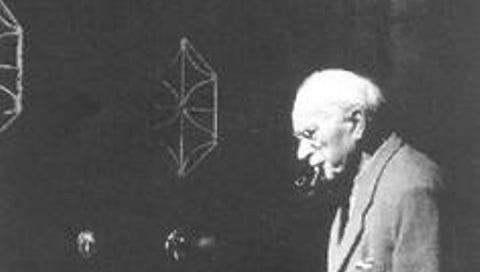There’s a peculiar form of intellectual cowardice in our modern academies ~ one that manifests most eloquently in their treatment of Carl Jung.
I was recently reminded of a story when I joined a conversation regarding the topic on X.
Years ago, while dining with a professor of psychology and family friend, our discussion drifted to the collective unconscious. My conversational companion (brilliant in his field, I should note) began to shift uncomfortably in his chair. “Of course,” he muttered, reaching for his glass, “we don’t discuss such things in serious circles anymore.”
Serious circles. How perfectly that phrase captures the provincial small-mindedness that has overtaken our institutions of higher learning.
The Greeks understood that wisdom requires both Apollo and Dionysus ~ reason and mystery, order and chaos.
Yet modern psychology has become a purely Apollonian enterprise in their desperate pursuit of “scientific legitimacy.”
It’s rather like watching a man insist on using a ruler to measure the depth of his own soul.
Jung’s great crime was not that he was wrong. His crime was that he was right in ways that couldn’t quite be contained within the confines of contemporary methodology. He dared to suggest that perhaps the human psyche was more akin to Dante’s Divine Comedy than to a mechanistic flowchart. One can hardly imagine a more grievous offense against our current intellectual orthodoxy.
Consider how we’ve neutered Freud to make him palatable. We’ve turned him into a kind of intellectual taxidermy…carefully preserved, lifeless, safely contained behind academic glass.
Jung’s work refuses such domestication. His insights claw at the boundaries of rational framework and remind us of what might be beyond constructed certainties.
I’m reminded of something someone (who shall remained unnamed) once told me over tea: “The problem with the Left,” she said “is that they’d rather be respectably wrong than controversially right.”
– The same can be said of modern psychology.
Jung understood something that our contemporary scholars seem to have forgotten: that truth is not always amenable to statistical analysis. The mysteries of human consciousness – our dreams, our myths, our intuitive understanding of archetypal patterns – these refuse to be reduced to p-values and confidence intervals.
Yet watch any psychology conference today (dreary affairs, though they occasionally serve decent champagne), and you’ll witness the curious spectacle of brilliant minds pretending human consciousness can be fully understood through brain scans and behavioral metrics.
– Would we attempt to understand Beethoven’s Ninth by analyzing the chemical composition of his sheet music? I think not.
The academy’s treatment of Jung shows us the level of insecurity at the heart of modern psychological science.
Just like a nouveau riche businessman desperately trying to hide his humble origins ~ contemporary psychology seems terrified that someone might discover it’s not quite as scientifically rigorous as it pretends to be.
But perhaps what’s most telling is the way Jung’s insights keep resurfacing, albeit in carefully disguised forms. When modern researchers speak of “evolutionary psychology” or “embodied cognition,” they’re often unknowingly circling the same ideas that Jung explored more directly and more honestly.
Everywhere we look, we see unprecedented mental health challenges of various shades. But we’ve deliberately marginalized one of the most profound investigators of the human psyche, whose ideas might actually have some merit. In a way, we’ve traded wisdom, understanding, and depth, for data, measurement, and precision.
Jung knew that the human soul (and yes, I dare use that unfashionable word) requires more than behavioral adjustment or chemical regulation. He understood that our psychological suffering sometimes stems from a deeper source: disconnection from the mysterious metaphysical realm of psyche that our rational minds simply cannot fully comprehend.
Such ideas are, of course, dangerous.
They threaten the comfortable certainties of academic establishment. They suggest that perhaps our current psychological paradigms aren’t so much wrong as desperately incomplete.
In the end, Jung’s absence from contemporary psychological discourse says far more about our own limitations than his. We’ve created an academic culture that prefers comfortable half-truths to uncomfortable whole ones.
How utterly, predictably, tragically small of us.
But then again, as Jung himself might observe, the shadow always returns ~ especially when we try our hardest to deny it.





This reminds me of the strange term they chose for the materialist revolution, the "enlightenment". I find it so strange they chose that word, while seemingly assassinating and denying the existence of any form of enlightenment at the same time. It's one of those funny but sad things I guess. Jung and Carl Sagan are my current favorites, and I've always enjoyed how Jung shows up over and over again despite his semi-ostracization from the more formal academic sphere. His head always pops up like an annoying neighbor in an 80s sitcom peeking into the window, to remind them of the self-created box they're living in is a flat, horrible representation of what it means to be conscious. They're busy dissecting only half of the sphere, and threw the other half in the trash!
‘Evidence based’ will hopefully go under the microscope now we’ve seen the cronyism, and monetisation and sleight of hand rampant in ‘peer’ reviews. Although in these days of half man half data receiver, I fear many have the depth to contemplate Jung’s contribution. Ditto Rowan.